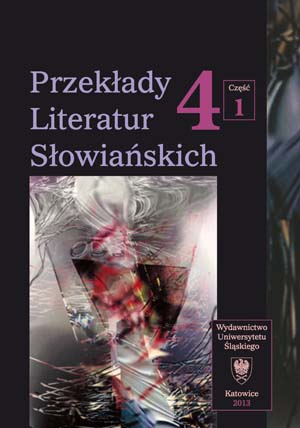"Ostatnia Wieczerza" Pawła Huellego (i Jany Unuk) jako konfrontacja z tradycją, z własną i cudzą kulturą
"Ostatnia Wieczerza" by Paweł Huelle (and Jana Unuk) as a confrontation with own tradition and other people’s culture
Author(s): Bożena TokarzSubject(s): Language and Literature Studies
Published by: Wydawnictwo Uniwersytetu Śląskiego
Keywords: a stereotype; translation; "The Last Supper"; Paweł Huelle; Jana Unuk
Summary/Abstract: In 2010, only three years after the Polish edition, a translation by Jana Unuk of the novel "Ostatnia Wieczerza" (‘The Last Supper’) by Paweł Huelle appeared. The mental schema of The Last Supper (the basis of a stereotype), which is in the character of a sacrificial feast and consists of: the shared supper of Jesus and the apostles, the knowledge of Jesus about the betrayal by Judas, about His own martyrdom, sacrifice and transubstantiation and the message of faith, covers the structure of the entire novel. The stereotype has been introduced into the context of the contemporary events as an argument of a broader dialogue on the topic of community, freedom, betrayal, religion and art. In a way, Jana Unuk has become a co-author of the novel by transferring the sense and the idea of the original version to the Slovenian culture, due to the performed language transfer. Despite the faithfulness to the original and the translation art of the translator, the mental schema of The Last Supper that is oriented upon the future did not receive the potentiality of the original (giving hope) because of the different pragmatics of the Slovenian language and its slightly different cultural conception. Entering into an accepting culture, the original assumes its features even on the level of translating stereotypes that are as stable as religious stereotypes.
Journal: Przekłady Literatur Słowiańskich
- Issue Year: 4/2013
- Issue No: 1
- Page Range: 185-207
- Page Count: 23
- Language: Polish

